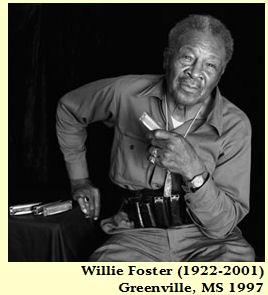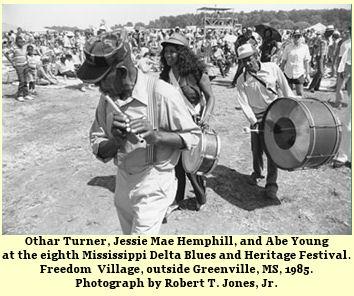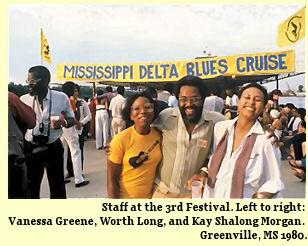As chronicled in The Most Southern Place on Earth by James Cobb, “The Blues musical styles are synonymous with and inseparable from the history of the South.” William Barlow pointed out that the blues represented a “broadly based cultural movement”. The blues represent lessons about ways of dealing with pain and suffering that transcend time.
MACE has significantly increased knowledge of and pride in the blues as a distinctive form of the Mississippi Delta’s arts and culture. When the Mississippi Delta Blues Festival began in 1978, it was the only major festival of its kind in the South.
It is the OLDEST continuously operating blues festival in the WORLD. In recent years, MACE has expanded the festival’s scope to promote other aspects of African American heritage in the Delta, such as gospel music. MACE has also linked on-going educational and cultural programs to the festival.
The first Mississippi Delta Blues Festival was more of a community gathering than a musical concert. It, along with the next nine Festivals, was held at Freedom Village, a rural community of less than 100 people which showed what was wrong with poverty and the programs designed to remedy poverty. Initially, the Festival was almost exclusively comprised of traditional blues people, playing acoustic instruments, (guitar, harmonica, and jug), on a flatbed trailer stage surrounded by the audience. While the Festival has grown in size, and certain aspects (staging, security, and management) have become more professional, it is still a community event, affordable to most residents and depending heavily on community volunteers.
 Participants at the Festival have included most of this country’s most famous performers, almost all of the Delta’s indigenous blues performers, and many emerging talents.
Participants at the Festival have included most of this country’s most famous performers, almost all of the Delta’s indigenous blues performers, and many emerging talents.
This event has attracted a Who’s Who of performers including B.B. King, Sam Chatmon, Son Thomas, Willie Foster, Ruby Wilson, Robert Cray, John Lee Hooker, Muddy Waters, Stevie Ray Vaughn, Albert King, Bobby Rush and Denise LaSalle. The festival has been covered by ABC, NBC, CBS, ETV, Ebony, Living Blues and The New York Times among others. Its hallmark is authenticity. The Mississippi Delta Blues and Heritage Festival was the host site for the U.S. Postal Service’s unveiling ceremony for its Blues Stamp Series. The festival has attracted tourists from every continent and is regarded as a place to pay your dues by Blues people.
MACE continues to increase access to the Blues bringing the music to regional and national audiences. It has sent blues musicians to perform at the Smithsonian Institution’s National Folklife Festival and elsewhere across the country and as far as Mexico. MACE has fostered the development of both old and new blues musicians by providing performance venues and generally promoting their performances and work while encouraging blues musicians to perform in local schools.
 As time passed, the crowds at the festival grew older and began to dwindle. It was evidence of the fact that there is a new generation of young people who are unfamiliar with the cultural roots and historical importance of the blues. There is the need for the youth of today, most of whom seem alienated from themselves and their elders, to become familiar with the themes of alienation in and around the Blues art form because these themes embody truths that we can draw inspiration and education from.
As time passed, the crowds at the festival grew older and began to dwindle. It was evidence of the fact that there is a new generation of young people who are unfamiliar with the cultural roots and historical importance of the blues. There is the need for the youth of today, most of whom seem alienated from themselves and their elders, to become familiar with the themes of alienation in and around the Blues art form because these themes embody truths that we can draw inspiration and education from.
Ironically, many young blues fans are white. They lack knowledge of the human suffering that produced the Blues.
In a chronically poor region, the Festival provides an economic boost contributing nearly three million dollars annually to the local economy. The economic impact of the Mississippi Delta Blues and Heritage Festival represents only a fraction of the revenue that blues-related cultural tourism can bring to the region.


